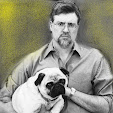Two crime titles to note briefly: Megan Abbott's Queenpin (which won the 2008 Edgar for PBO); Arnaldur Indridason's Jar City. Abbott's book is a fun, occasionally brutal neo-pulp noir. The writing is slick, the fashion thick, and the traditional gender roles somewhat inverted (e.g., there is an homme fatal instead of a femme fatale.) I would note in passing that Abbott has a Ph.D. in English from NYU. When I started writing crime fiction, I thought I would be the only English Ph.D. trying to ply the trade. It turns out we're a dime a dozen. Indridason is Icelandic, and the best part of the book is arguably the (genre expected) Scandinavian dreariness.

And, still on my war-reading path, I read Charles Henderson's Marine Sniper as a follow-up read to Matterhorn (see previous post). Marine Sniper is the non-fictional account of Carlos Hathcock's two tours in Vietnam. The book (subtitled, 93 Confirmed Kills) is largely straightforward heroic reporting on Hathcock's most astounding feats. They are riveting tales: holding off a large contingent of NVA, stalking into an enemy general's compound, killing a man from 2,500 yards. The book does not purport to examine the politics or the strategy of the war much, though it does chart the decline in effectiveness and morale between Hathcock's first tour (1966-67) and second tour (1969). It also does not pull certain punches: for instance, in the opening episode, Hathcock kills an approximately 12-year old boy (transporting rifles by bicycle) at 2,000 yards. Though Hathcock survived many, many dangerous situations, the book does not quite represent his combat struggles or fears (which may have been often contained; he was a smart, confident, brave sniper). In this regard, the fictitious Matterhorn might be the more accurate (or representative) book (though Matterhorn's infantry soldiers are not snipers).

No comments:
Post a Comment